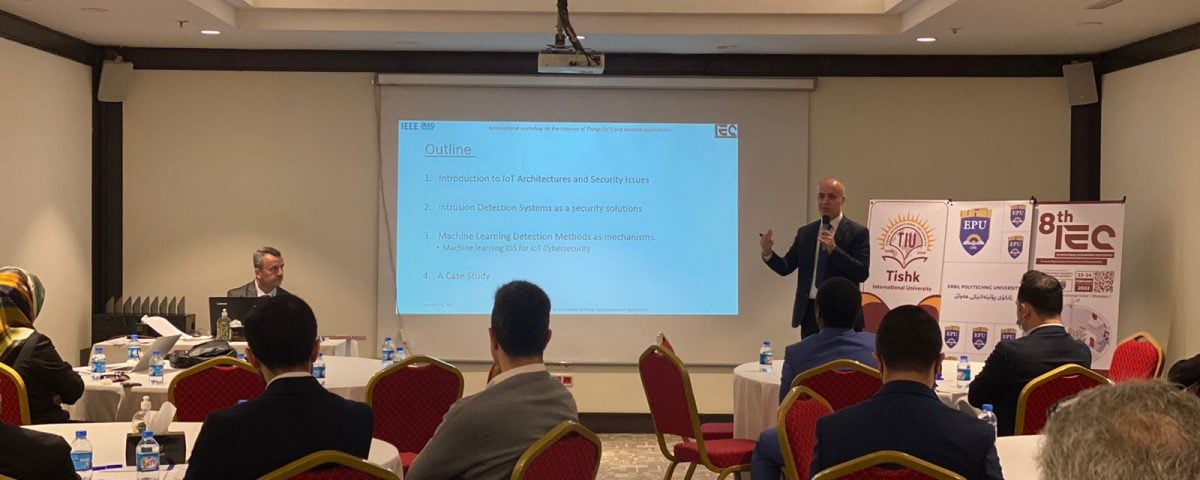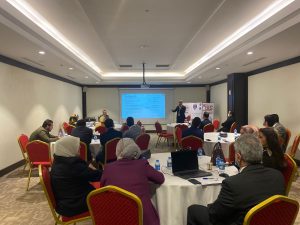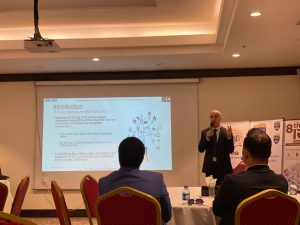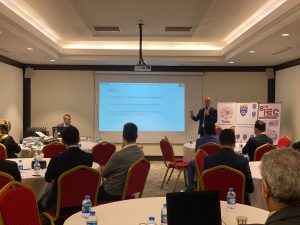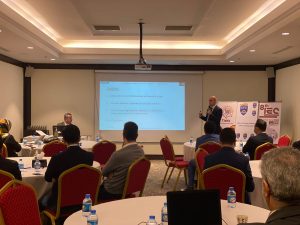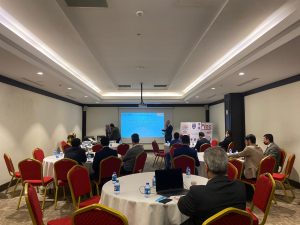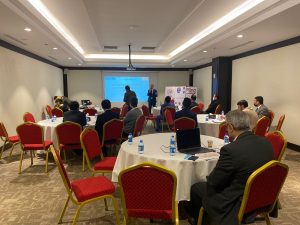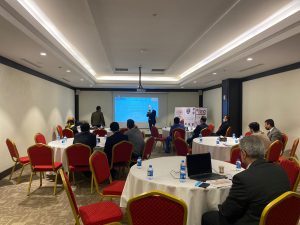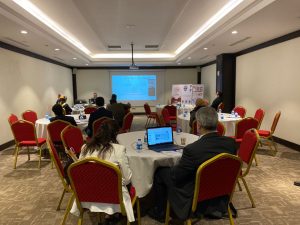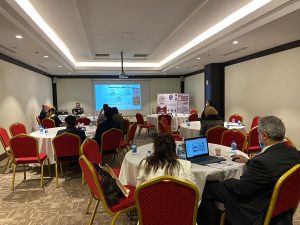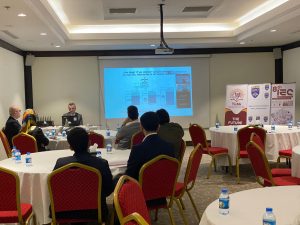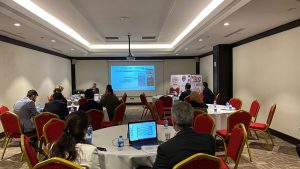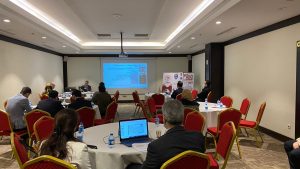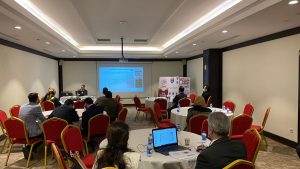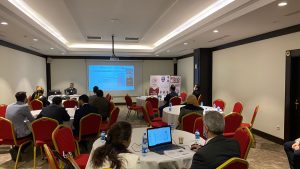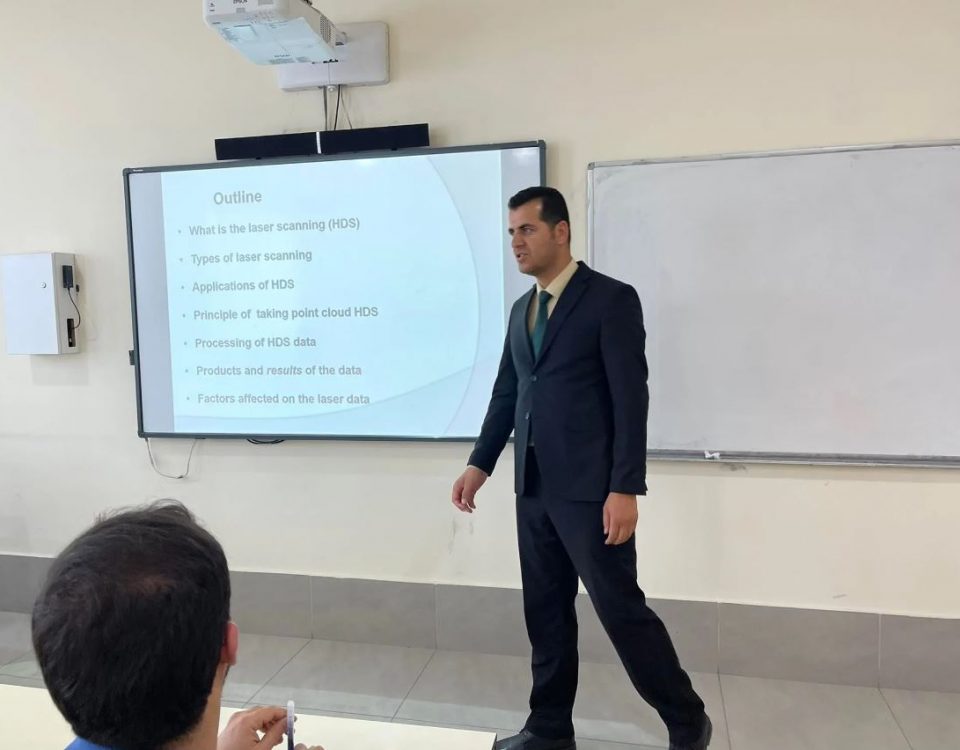Department: Computer Engineering
Participants: 31
Place: Erbil International Hotel, Safeen Hall
The main topics covered in workshope were:
– Intelligent Intrusion Detection Systems for Cyber Attacks over IoT Networks
– Combinatorial Testing for IoT Systems
– A Secure and Intelligent Framework for Vehicle Health Monitoring System Exploiting Big-Data Analytics
Presenters names and affiliations:
– Dr. Shahab Wahab Kareem (Chair), Erbil Polytechnic University
– Associate Professor Dr. Saman Mirza Abdullah, Tishk International University
– Associate Professor Dr. Abdul-Rahman Ahmed Alsewari, Faculty of Computing, Universiti Malaysia Pahan, Malaysia
– Senior Lecturer, Md Arafatur Rahman, School of Mathematics and Computer Science, University of Wolverhampton, UK
Outcome of the workshop:
This workshop focused on some new trends in the field of intelligent IDS, security related of IoT networks and systems, and a brief case study cyber-attack detection through intelligent IDS. Smart cities depend on the integration between the systems via internet connections which are known as the Internet of Everything (IoE). The integrated systems raise several concerns involving the potential presence of critical integration defects. Therefore, there is a need for an interaction testing approach. In this research, we will present the Combinatorial Testing concepts, issues, and available strategies. The dependency on vehicles is increasing tremendously due to its excellent transport capacity, fast, efficient, flexible, pleasant journey, minimal physical effort, and substantial economic impact. As a result, the demand for smart and intelligent feature enhancement is growing and becoming a prime concern based on the current perspective for maximum productivity. In this case, the Internet of Everything (IoE) is an emerging concept that can play an essential role in the automotive industry by integrating the stakeholders, process, data, and things via networked connections. For this, we proposed a conceptual framework for a central VHMS exploiting IoE-driven Multi-Layer Heterogeneous Networks (HetNet) and a machine learning technique to oversee individual vehicle health conditions, notify the respective owner-driver real-timely and store the information for further necessary action.


